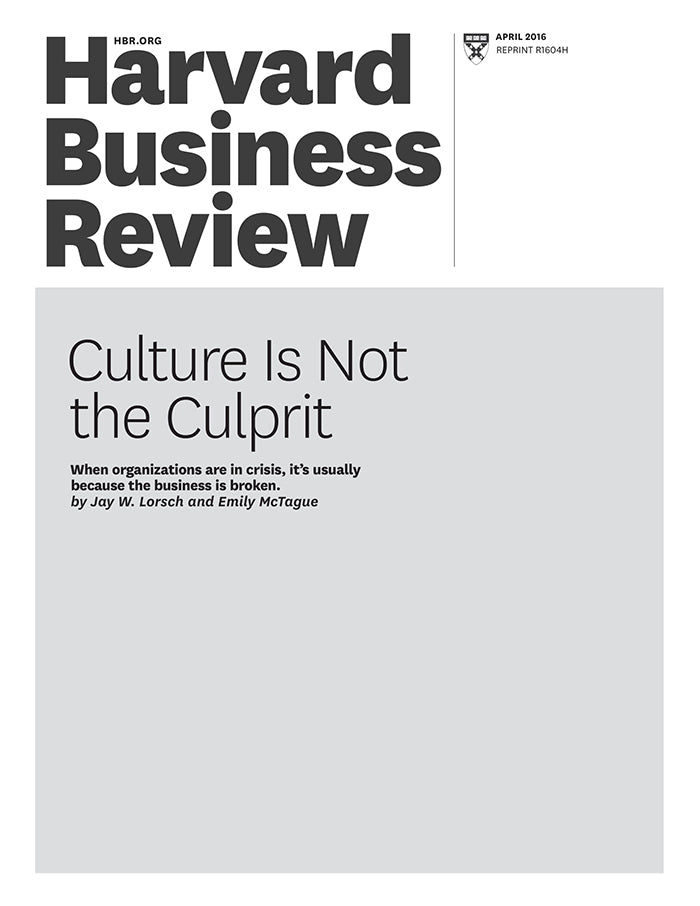Culture Is Not the Culprit
受取状況を読み込めませんでした
When organizations get into big trouble, fixing the culture is usually the prescription. That's what most everyone said GM needed to do after its 2014 recall crisis. Cultural reform has likewise been proposed as the solution to the corrosive bureaucracy at the Veterans' Administration, unethical behavior in banks, and the excessive use of force by police. But interviews with successful change makers, conducted by Harvard Business School's Jay W. Lorsch and Emily McTague, suggest that culture isn't something you "fix." Rather, cultural change is what you get when you put new processes or structures in place to tackle tough business challenges. Organizations are complex systems with many ripple effects--and reworking fundamental practices will inevitably lead to new values and behaviors. In this article, the authors explain how this played out during four major transformations: the remake of Ecolab into a diversified corporation three times its original size; the postbankruptcy merger of Delta and Northwest; the turnaround of Ford; and Novartis's shift to a diversified health care portfolio. Each firm's CEO took a different approach for a different end. Ecolab's Doug Baker pushed decisions down to the front lines to strengthen customer relationships. Delta's Richard Anderson got airline workers on board by focusing on meeting their needs. Ford's Alan Mulally broke down barriers between units to improve collaboration and efficiency. Novartis's Daniel Vasella decentralized to unleash creative energy. But in every case, when the executives used tools such as decision rights, performance measurement, and reward systems to address their particular business challenges, organizational culture evolved as a result, reinforcing the new direction.
【書誌情報】
ページ数:11ページ
サイズ:A4
商品番号:HBSP-R1604H
発行日:2016/4/1
登録日:2016/4/5


